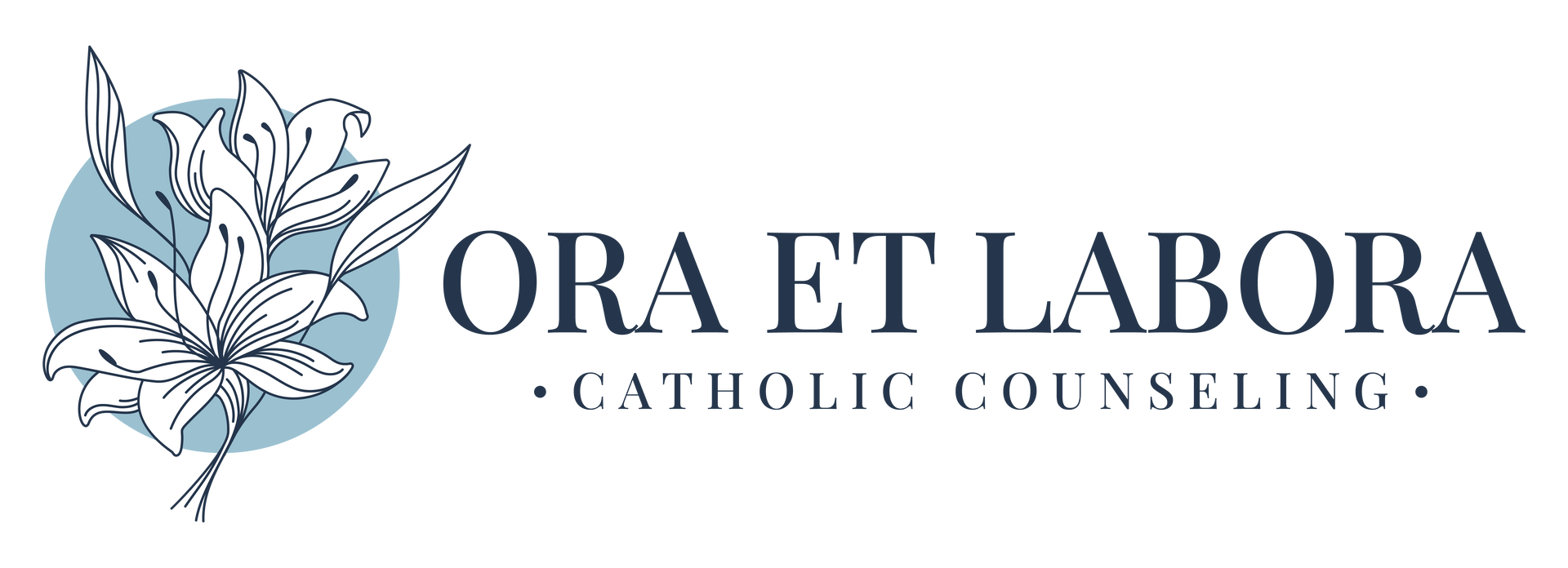Our Mission & Approach
Our Mission
At Ora et Labora Catholic Counseling, our mission is to foster the restoration of the whole person through hope, understanding, and peace for those burdened by mental health concerns. Guided by the spirit of prayer and work, we help clients freely cultivate a deep dependence on God—one that empowers rather than diminishes their own responsibility and engagement in building a life of meaning and purpose.
Rooted in the Catholic faith and informed by evidence-based therapeutic modalities, Ora et Labora Catholic Counseling is privileged to walk alongside clients on their path toward healing and holiness. We draw on each person’s strengths, honor their faith, and provide practical skills to help them live through their values—not their fears.


Our Values
We define our work by what matters most, focused fully on our faith and quality of clinical care.
Integrated Care: Faith is intentionally and thoughtfully integrated into our work, creating a therapeutic space shaped by prayer, reflection, and meaningful action.
Specialized Clinical Excellence: Our team is committed to clinical excellence, continually developing expertise in specialized areas to provide effective, evidence-based treatment.
Values-Based Living: We help clients develop practical skills to respond to life’s challenges in alignment with their faith and deeply held values — not fear, avoidance, or shame.
How are we different?
Our therapists care deeply about living out the Catholic faith and know the powerful impact it can have when it is integrated with proven clinical treatment options.
When you have the choice of a clinician that shares your beliefs, we want you to have the freedom to work with someone who also exhibits clinical excellence in their specialties. That's what we do different — we create a place for both clinical expertise and Catholic faith to work together, honoring your values while using proven therapeutic methods to support meaningful, lasting healing.
With Ora et Labora Catholic Counseling, you don't need to choose between faith-based therapy and finding a specialist who knows your experience inside and out. We care about holding space for both, and we want you to have that, too.

If You're Ready, We're Here
Reaching out is one small step towards a big change. It's okay to feel unsure of what that will look like, or even if you think it could really help.
You have what it takes to become who you're called to be, and you need support along the way. We all do, and it's an act of faith and courage to ask for that.
Therapy is a great place to find that support, and finding a therapist who walks in faith like you can amplify your experience and offer a whole new layer of integration in your work together.
One small step can make all the difference. Reach out today and learn how we can help you to build the life you're made to live.
Therapy can be the next step towards finding more balance and peace in your daily life.
Through therapy, you’ll develop the skills to manage your mental health while staying true to your faith. You’ll be able to make decisions without the overwhelming sense of guilt or fear that’s been holding you back. And you’ll start to feel more like yourself again… stronger, more connected, and ready to begin again.



